How Scoop plans to pioneer and spread a new model for independent media

In part 1 of this series, I wrote about the news crisis in 2018 and why there is hope for journalism despite of (or perhaps because of) the continued dominance and disruption of the sector by the digital platform monopoly giants Facebook and Google. Last week I followed up with a piece exploring ten reasons to have hope that we will deal with this crisis and come out of it with a better Media than ever. This final piece in the series will outline exactly what Scoop plans to do about this crisis in the coming months, and how we think we, and you, can help.
Why the news crisis matters

The rise of social media giants as the main mechanism of delivery of news to the majority of citizens has disrupted the industry and reshaped the way we consume news from media platform based to social media aggregator based consumption. The adoption of non-transparent AI algorithms has led to extractive data mining of user information and increasing personalisation of news feeds by these players. This has enabled dark money to be poured into social media ads targeting specific populations to successfully influence public opinion and political elections and is polarising and dividing society into echo chambers or ‘filter bubbles’.
This process has destroyed the ad-based financial models and threatened the sustainability of many independent and local news providers resulting in layoffs and less funding for good journalism. This has further decreased skilled editorial and journalistic oversight and fact-checking and further contributed to the crisis of Trust in the Media. When citizens can no longer trust our news sources and social media feeds, this seriously impacts the ability of newsrooms and journalists to fulfil the public service role required of them in a thriving democratic society. Without a robust and independent press providing a check on politicians and companies our freedom is seriously compromised and we risk drifting further towards authoritarianism, elitism and inequality.
Why the need to rethink?

The battle for the clicks of readers has led to rise of clickbait and the increasing personalisation and customisation of social media and app based news feeds. Readers are already being conditioned to expect nothing less than a rapid flow of personalised and engaging content when consuming news online. This will continue to threaten the existence of traditional web-based media platforms like Scoop unless we can find a new way forward.
However, there is also good reason to believe that a new path and a better future is possible for independent Media. A combination of new technology, ideas, institutions and business models and a renewed energy and commitment by those inside and outside the sector to solving these problems, means we could be entering a new era of credible, independent and powerful journalism. Scoop aims to be at the forefront of the development of this renaissance that we term ‘News 3.0’.
It is becoming increasingly apparent that digital Media companies must adapt to become more like technology companies in order to survive in this modern environment. However we must ensure we do so ethically and with good processes and do not simply emulate the destructive and extractive elements of the tech giants.
Scoop 3.0 - A Global Vision and Future Focus

As a result of the above considerations, we have identified a bold path forward. It involves opening Scoop up to the community, investing heavily in tech development and creating a cutting edge product and a connected ecosystem. We believe doing so can help, not only Scoop, but other independent and local news providers in NZ and globally to solve the major financial issues they face.
Creating a stable and well-funded ecosystem for quality public interest journalism in New Zealand is the ultimate goal of Scoop, and this is why the Scoop Foundation exists as owner of Scoop. However, to get to a point where Scoop is consistently sending excess profits to the foundation for this purpose, Scoop needs to be stably and consistently funded in the long-term.
Our ScoopPro ‘ethical paywall’ model is certainly helping keep us afloat with just over 200 commercial clients paying for Scoop’s professional services and the license to use Scoop professionally. However, we still need to break through this seeming glass ceiling to increase the amount of companies complying with these licensing terms to sustainably fund our core operating costs and increase the amount we spend on quality content and development.
We also need to secure enough funds to keep pace with the rapid technological development and disruption of the sector or we risk being swallowed up by the digital giants. In order for Scoop to become a relevant part of the News 3.0 infrastructure, we believe we will need to explore a multimedia approach and embrace exciting innovations such as AI, blockchain and enhanced media literacy and information hierarchy approaches. These elements will likely become commonplace in the sector the near future so future-proofing Scoop by adopting early is vital.
To achieve this, we will need to ensure Scoop is decentralised and that the community around it has a stake in its future and is incentivised to contribute to its maintenance and development. We will also need to ensure Scoop is part of and integrates smoothly with a wider ecosystem of other independent media trying to achieve similar goals.
The leading media platforms of the future will not be platforms at all, they will be decentralised ecosystems of newsrooms and communities operating on shared protocol layers and shared governance and codes of ethics.
Embracing New Technologies

This transition will involve upgrading the Scoop.co.nz site and associated sites to a modern platform capable of making better use in the future of multimedia, advanced analytics and new technologies such as the blockchain and AI. These could enable greater verification, archiving and micro-payments to Scoop and content contributors enabling us to build new financial incentives for those engaged in the ecosystem.
It will also involve upgrading Scoop’s professional information tools such as the ScoopPro services of InfoPages and Newsagent newsletters and custom news intelligence and media monitoring features. We will also make these available in simplified forms for non-professional readers and explore how we can extend the approach to assist other local media organisations in New Zealand.
Understanding the implications of blockchain in news media
As I outlined last week, Scoop is exploring possibilities for working with existing blockchain news organisations to implement certain vital features of the new Scoop 3.0 ecosystem.
Jarrod Dicker, ex Innovation Chief at The Washington Post, believes blockchain can influence and build a better media business. At the recent WAN-IFRA World News Media Congress, Dicker emphasised that blockchain could accelerate a change in how the business side of media is managed. In his presentation, Dicker outlined three practical elements of the blockchain with potential to positively influence the current media landscape:
• Attribution: Identifying, vetting and verifying the source of immutable content, bringing total transparency to publishing.
• Reputation: A decentralised media economy built on reputation will provide a benchmark and ‘stomp out bad actors and rise good actors.’
• Discovery: Changing how content is distributed and where it can be found can be circumvent the dangers of censorship.
We feel the Civil blockchain project aligns well with Scoop’s ethics and approach of decentralisation. The Civil approach to media literacy also aligns with the goals of the Scoop Foundation to support independent journalism in the public interest and further media literacy education.
We also believe that Scoop 3.0 and the new tools we create can contribute to the Civil ecosystem. Civil has launched a collaborative product development studio for startups to develop new media products for release on the Civil protocol layer and ecosystem. Our innovative raw press release feed and ScoopPro ‘ethical paywall’ model could potentially be re-developed in a way that is of benefit to other newsrooms on the network to help them achieve financial stability.
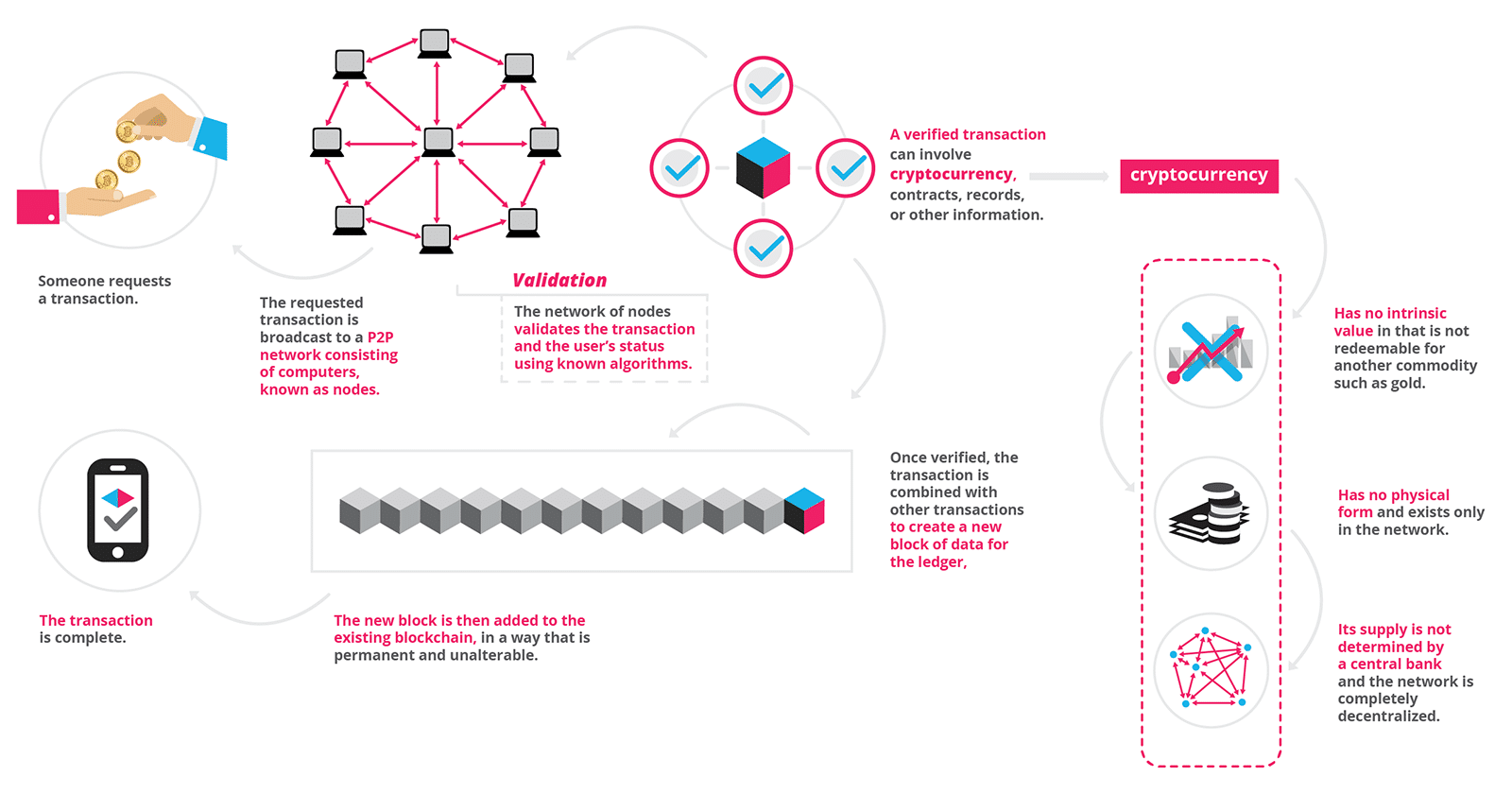
Can technology save Journalism?
Yes, and No! Technology will necessarily be a crucial part of the solution. The reality is, that since many of the problems we face have a technology origin, we need to fight fire with fire. Given the scale of issues we face in the space of fake news, AI, and machine learning, blockchain technology may in fact present the best chance of saving news media from the crisis it faces. The most successful and innovative organisations in the News 3.0 transition will be those that harness the best parts of these technologies in order to create and present information in new ways to further the value of good reporting, verifiable truth and transparency of sources. We could in fact be entering an era of enhanced media education and critical thinking aided by these technologies.
However, technology alone will not be enough to achieve this. Embracing the potential of technology does not mean we should jump on the techno-utopian, data-religion bandwagon without question. It is extremely important that these tools and technologies are adopted in responsible and ethical ways.
The problem is that these technologies are currently being used for extractive and divisive means. However, if we can put them to work in the service of good journalism and truthfulness, this coming wave of technology may in fact present major opportunities for journalism to regain the credibility and trustworthiness it so badly lacks today.
This requires pioneering, credible and independent media players like Scoop to lead by making the most of the potential technologies, while ensuring we bake in appropriate safeguards and policies to ensure they are used responsibly and do not reinforce existing biases or exclusions.

Editors over algorithms
There will be even more need in the future for skilled journalists and editors who passionately believe in the value of good journalism, human values, insight, instinct and the important role of the media to advance the public interest.
Currently there are also a lot of technology companies functioning as media companies, (Facebook, Google, Amazon). However the root of problem is they don’t really admit they are media companies and as such do not have appropriate editorial or structural safeguards in place. That has led to the problems we see today such as fake news, filter bubbles and the trust deficit. Rushing to emulate this approach may not be the best path for media platforms as JSK Journalism fellow Titus Plattner points out:
“Bias bubbles, filter bubbles, information blindness, preference bubbles, are all different ways to describe the same phenomenon: people get what they want, but are less exposed to other opinions and less and less confronted with facts they’re not interested in. By using the same click-driven recommendation engines on their platforms, media outlets could reproduce this toxic atmosphere, just on a smaller scale than social media or news aggregators.”
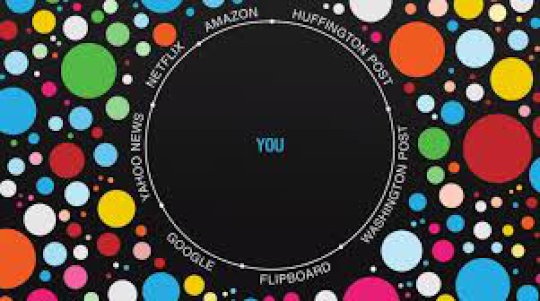
It is important that we figure out how to embed news judgement and editorial thinking into any systems we create to guard against bias in tech and to ensure that our product is solving rather than contributing to the problems in the news industry. We aim to ensure we retain editorial thinking and core human values such as compassion, and integrity to explore solutions to these problems.
Matthew Howard writes in Techcrunch, each industry (Including news media) will need to develop a code of ethics around AI in the near future and even suggests we need the equivalent of Underwriters Laboratories (a quality assurance company) for news:
“As our news media and social platforms become increasingly AI-driven, businesses from startups to global powerhouses must be aware of their ethical implications and choose wisely when working this technology into their products...AI will continue to give algorithms significant influence over what we see and read in our daily lives. We have to ask ourselves how much trust we can put in the systems that we’re creating and how much power we can give them. ”
Scoop will also include in our charter and editorial and privacy policies, a clear undertaking not to use AI or data gleaned from users for inappropriate purposes such as sale to 3rd parties or surveillance by third parties. We will also advocate for an industry wide standard on these issues.
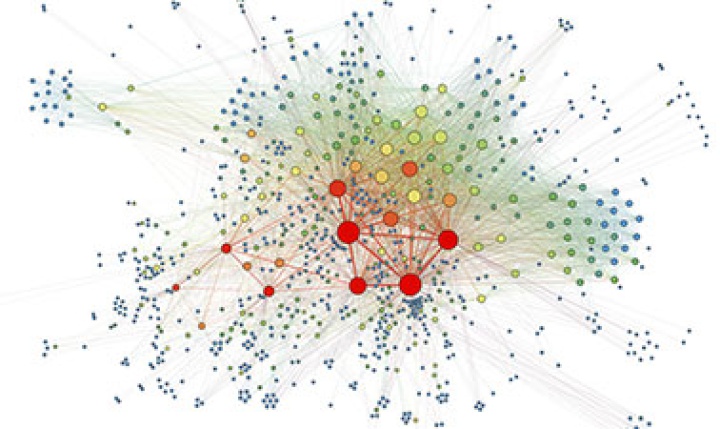
A new Media requires new business models
The Scoop 3.0 transition will also require systemic innovation in the form of better, more sustainable and resilient business models that bring readers and citizens into the equation as a means of holding newsrooms and journalists accountable. The reality is that economic structures built on value extraction (whether extraction of data, charging via traditional paywalls or simply using reader eyeballs as advertising fodder) cannot enable healthy information ecosystems.
Therefore, the systemic changes of making Scoop more decentralised and community owned and locally focused will have the greatest impact on solving the crisis we face. I discussed in part 2 how the evolution of Scoop 3.0 will include giving our staff, readers and commercial users the opportunity to purchase shares in the organisation as New Internationalist did in the UK last year. We are interested in adopting the ‘Fairshares Cooperative Model’ which was developed in the UK and is now used by many community owned organisations and cooperatives around the world.
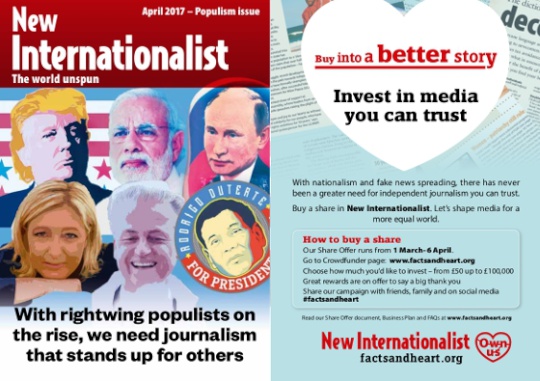
Crowd-selling shares in the Scoop Publishing Social Enterprise to the community, will make Scoop a fully decentralised, community owned and cooperatively run news organisation. This will mean that the community around Scoop co-owns a vital piece of infrastructure for the New Zealand news industry, and will ensure a diverse range of views are involved in issues relating to the future shape of Scoop as we continue to develop.
A Participatory and Inclusive Approach
News 3.0 will feature multi-input and multi-directional news creation tools with various different ways for citizens to participate in the process. Scoop 3.0 will seek to explore new approaches and new features that will allow the public to be involved more actively in the creation and consumption of news media. We will explore opportunities for the public to contribute to (and be rewarded for) activities such as newsgathering or voting/evaluation of credibility through advanced ‘citizen journalism’ tools. We will explore other more interactive media such as advanced AI enabled commenting and polling tools, and collective intelligence tools such as our HiveMind project.
We will also aim to provide disability accessible media, enhanced Te Reo content and will adopt a diversity mindful approach. Ensuring these issues are considered in all editorial and technology decisions will help to ensure that the technology we adopt does not reinforce biases or exclusions. We will adopt a user friendly information hierarchy, and aim to provide transparency around elements that go into each story. This will provide various entry points for readers of different levels and interests to expand our audience reach and enhance media literacy.
The End Game - Open Sourcing Scoop
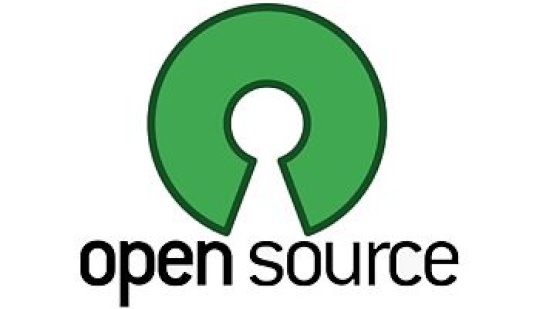
We believe Scoop’s underlying model is innovative and provides a potential solution to the news crisis. We now aim to evolve the model by building a custom fit-for-purpose open source tech stack so that we can expand the Scoop theory of change.
Scoop’s press release publishing service, ‘ethical paywall’ model and related professional subscription tools offer a unique opportunity to provide a financial basis for a basic professional newsroom suite that is easily replicable and adoptable by others. We believe we can refine and package this entire approach and offer it to local and community-based news organisations or even groups of freelancers to strengthen local independent news in New Zealand and globally.
Opening up this approach to a wider group will help to create a shared ecosystem for local journalism from the ground up. This will help to enhance collaboration and solidarity among news publishers rather than competitiveness and clickbaitism.
Bundling the Scoop model and providing consulting services under a software as a service model could even provide some of the additional income and engagement required to help Scoop publishing survive and thrive into the future. This will also ensure the Scoop Foundation’s goals of supporting independent public interest journalism are achieved, and continue to provide financial support for truly independent and public interest focused journalism.
How we plan to achieve this vision:
Firstly, we believe Scoop is well placed to achieve this plan for a number of reasons:
1 - We already have a unique platform and service with a point of difference. We publish a continuous and comprehensive press release feed and enable readers and professional users to deep dive into issues.
2 - Our business model as a non-profit owned by a Foundation enables us to decentralise and pursue a social mission without a need for profit to shareholders or excessive salaries.
3 - We have a working relationship with Enspiral, a world-leading social enterprise network responsible for products such as Loomio and Cobudget and revolutionising the collaborative freelance workplace.
4 - We have a strong community of readers and supporters who believe in our mission and the need for independent public interest media in New Zealand.
Scoop 3.0 Theory of Change

A Theory of Change is a comprehensive description of how and why a desired change is expected to happen in a particular context. The table below is a draft depicting the path to change we expect to see from the Scoop 3.0 plan.
| Activities | Output | Outcomes | Impact |
| Crowdfunding campaign | Seed funds secured | Scoop is able to develop a strategic and tech plan for Scoop 3.0 | A shared future vision for independent media is born |
| Community share offer | Shares issued to community Development funds secured | A community shares the vision and supports the plan to proceed with Scoop 3.0 | Scoop is able to invest in further tech development |
| Develop ScoopPro news intelligence and PR tools | More commercial clients
gained and increased content | Scoop is well funded and hosts useful and important information | Scoop core service is maintained while continuing to focus on future vision |
| Develop new Scoop platform with enhanced UX and media literacy friendly structure | More accessible information for users, Better reading experience, More content is published | Readership, loyalty and media literacy increases | People are well informed and educated about media and societyGovt and public are held to account |
| Create/adopt a blockchain-based ecosystem protocol layer and integrate with Scoop platform | Creates tools for verification, voting, evidence base and Micropayments on platform Connects to other platforms using same layer | More content
available on Scoop. Content is accurate and
verifiable Contributors are funded for efforts | Thriving, robust, verifiable and uncensored journalism ecosystem exists into the future |
| Platform, publishing service, Ethical paywall and Subscriptions model are extended as a SaaS product | Enables more news organisations to adopt the Scoop 3.0 model Increase amount of content published on ecosystem, | Creates a connected network
of newsrooms using similar approach Improves ScoopPro
service content Generates income stream | A secure, robust, decentralised and connected ecosystem of independent and local news providers exists globally and is self sustaining |



 Richard S. Ehrlich: Deadly Border Feud Between Thailand & Cambodia
Richard S. Ehrlich: Deadly Border Feud Between Thailand & Cambodia Gordon Campbell: On Free Speech And Anti-Semitism
Gordon Campbell: On Free Speech And Anti-Semitism Ian Powell: The Disgrace Of The Hospice Care Funding Scandal
Ian Powell: The Disgrace Of The Hospice Care Funding Scandal Binoy Kampmark: Catching Israel Out - Gaza And The Madleen “Selfie” Protest
Binoy Kampmark: Catching Israel Out - Gaza And The Madleen “Selfie” Protest Ramzy Baroud: Gaza's 'Humanitarian' Façade - A Deceptive Ploy Unravels
Ramzy Baroud: Gaza's 'Humanitarian' Façade - A Deceptive Ploy Unravels Keith Rankin: Remembering New Zealand's Missing Tragedy
Keith Rankin: Remembering New Zealand's Missing Tragedy